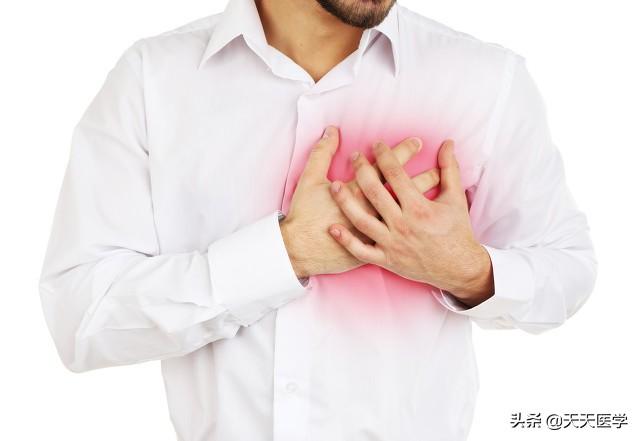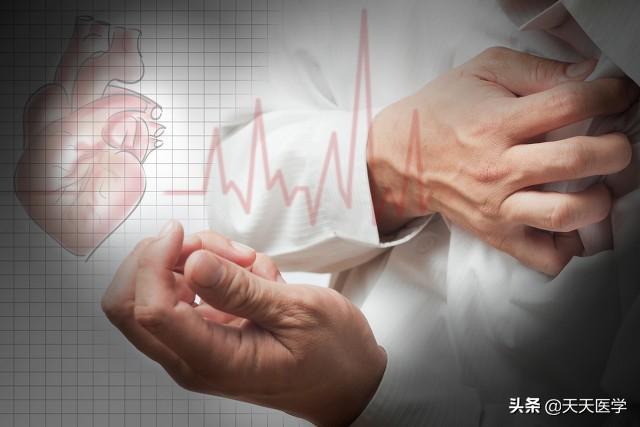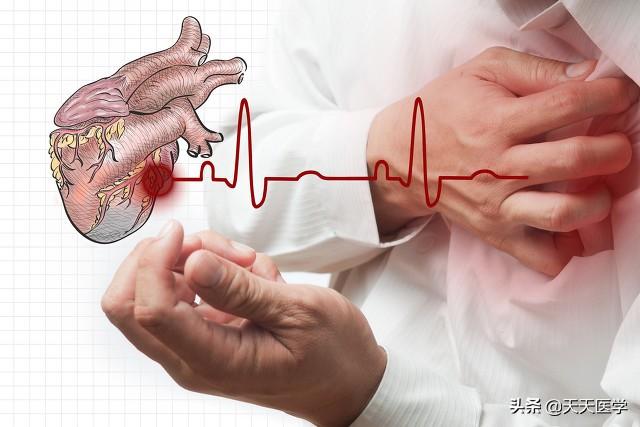What does palpitations mean?
What does palpitations mean?
Palpitations are a feeling of discomfort or panic in the beating of the heart. Patients often use language such as "cardiac turmoil," "cardiac arrest," and "panic" to describe palpitations.
There are many causes of palpitation, which can be broadly divided into physiological and pathological palpitation. ① Physiological factors: healthy people during strenuous exercise or mental overstress; after drinking alcohol, strong tea or coffee; the application of certain drugs, such as adrenaline, ephedrine, caffeine, atropine, thyroid tablets, etc.; pregnancy. ② Pathological factors: heart disease (hypertensive heart disease, aortic valve closure insufficiency, arrhythmia, etc.); hyperthyroidism, anemia, fever, hypoglycemia, menopausal syndrome and other diseases, can also lead to palpitations.
When palpitations have nothing to do with arrhythmia, no special treatment is needed; if palpitations are accompanied by chest pain, fever, fainting, convulsions and dyspnea, they should go to the regular hospital in time, so as to clarify the cause of the disease and actively carry out the treatment.
Reviewed by Hongyu Peng, Deputy Chief Physician, Department of Cardiology, Beijing Anzhen Hospital
Click here for details of the doctor's answer
Palpitations are a self-conscious feeling of discomfort or panic in the beating of the heart. The heart feels uncomfortable when the heart rate is fast and strong when the heart rate is slow. In palpitations, the heart rate can be fast or slow, there can be arrhythmia, and people with normal heart rates and rhythms can sometimes experience palpitations.

There are many causes of palpitations, in addition to lesions of the heart itself, certain systemic diseases can also cause palpitations, as well as physiologic and functional palpitations. It is mainly manifested in the following 6 aspects:
1. Enhanced heart fluctuations:There are physiologic and pathologic causes of palpitations. Palpitations caused by enhanced physiologic heart fluctuations occur mainly in healthy people during strenuous exercise or mental overstress; after drinking alcohol, strong tea or coffee; and after applying certain drugs such as adrenaline, ephedrine, caffeine, atropine, thyroid tablets, and so on. Fluctuating heart palpitations caused by pathological factors are mainly caused by ventricular hypertrophy and other diseases. Diseases that cause ventricular hypertrophy include hypertensive heart disease, aortic valve closure insufficiency, mitral valve closure insufficiency, and other diseases that cause left ventricular hypertrophy and increased heart contraction. Arterial ductus arteriosus and ventricular septal defects have increased return flow, which increases the load on the heart and leads to ventricular hypertrophy, which can also cause palpitations. In addition to the foot heart disease, due to vitamin B1 deficiency, peripheral small arterial dilatation, decreased resistance, increased return blood flow, increased workload of the heart, can also appear palpitations. Other diseases are hyperthyroidism, anemia, fever, hypoglycemia, pheochromocytoma when the heart rate is accelerated, beat enhancement and palpitation symptoms occur.

2. Arrhythmia:Symptoms of palpitations can occur with tachycardia, bradycardia, or other arrhythmias.
(1) Tachycardia: Symptoms of palpitations can occur in diseases such as sinus tachycardia, paroxysmal supraventricular or ventricular tachycardia from various causes.
(2) Bradycardia: High degree atrioventricular block (second and third degree atrioventricular block), sinus bradycardia, or sick sinus node syndrome, etc., cause palpitations due to the slow heart rate, prolonged diastole, increased ventricular filling, and strong and forceful heartbeat.
(3) Other cardiac arrhythmias: preterm contraction, atrial flutter or fibrillation, etc. As the heart beats irregularly or with a period of intermittency, the patient may feel palpitations, or even the sensation of stopping the heart.
3. Heart failure:Symptoms of palpitations can occur in heart failure from a variety of causes.
4. Cardiac neurosis:Caused by autonomic dysfunction, the heart itself has no organic lesions. It is mostly seen in young women. Clinical manifestations in addition to palpitations are often accompanied by accelerated heart rate, precordial or apical pain, as well as fatigue, insomnia, dizziness, headache, tinnitus, memory loss and other neurasthenic manifestations, and more likely to occur in the case of anxiety, agitation and so on.
5. Beta-receptor hyperactivity syndrome:It is also related to autonomic dysfunction and is prone to occur during stress. Its manifestations may include some ECG changes in addition to palpitations, tachycardia, chest tightness, and dizziness, with the presence of sinus tachycardia, mild ST-segment downshift, and flattening or inversion of the T-wave, which is easy to confuse with organic cardiac pathology. The use of propranolol (cardioplegia) test can be identified. beta-agonist hyperactivity syndrome, after the application of propranolol ECG changes can return to normal, indicating that the changes are functional.
6. Menopausal syndrome:Around the time of menopause, a series of symptoms of endocrine and autonomic dysfunction occur, and palpitations are one of them.
7. Other:Palpitations can also occur with large pleural effusions, altitude sickness, and bile heart syndrome.

Follow Daily Medicine for more health knowledge. Inadequate, please correct and add.
Thanks for reading!
Palpitations are a feeling of discomfort or panic in the beating of the heart. Palpitations occur when the patient is conscious of a fast and strong heartbeat accompanied by discomfort in the precordial area. Given the course of a variety of diseases, it is mostly coexisting with insomnia, forgetfulness, vertigo, tinnitus and so on. Generally healthy people in strenuous exercise, high mental tension or high excitement will also feel palpitations, belong to the normal situation, but there are pathological conditions, such as heartbeat is too fast and too slow or there are premature beats, the patient will also feel palpitations.
In rare cases, such as cardiac neurosis or hyperanxiety, patients often present with palpitations due to increased sympathetic tone and a strong heartbeat, even though they do not have arrhythmias or organic heart disease. Palpitations require a number of tests, including electrocardiograms, ambulatory electrocardiograms, and echocardiograms to rule out cardiac causes of palpitations, as well as blood glucose, thyroid function, and blood tests to rule out palpitations due to anemia, infection, or hyperthyroidism. If all tests are ruled out, palpitations may be caused by neurosis or vegetative nerve disorders.
The medical term for panic, mostly seen in premature tachycardia and other uncomfortable sensations that are different from chest tightness and chest pains
This question and answer are from the site users, does not represent the position of the site, such as infringement, please contact the administrator to delete.